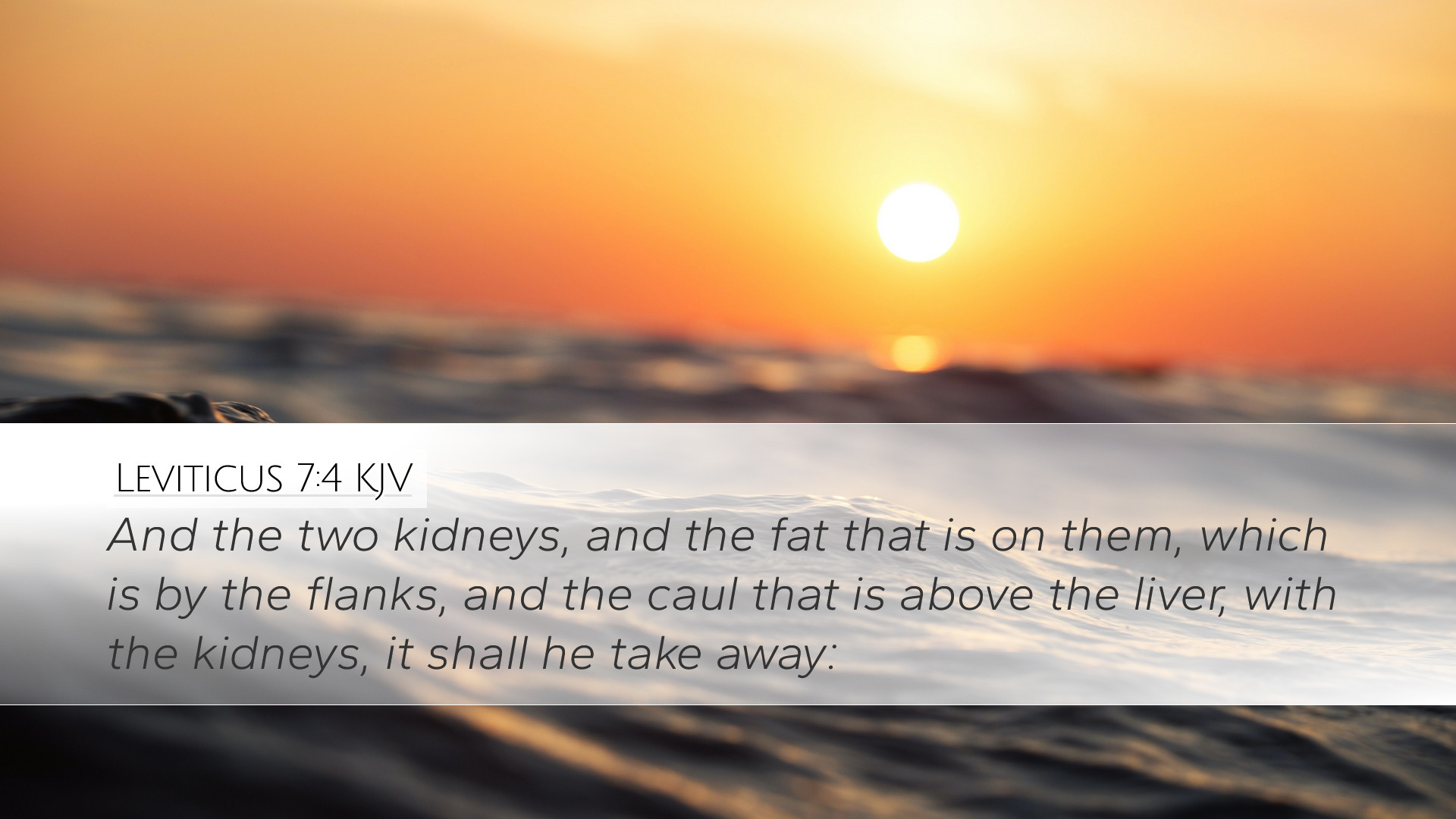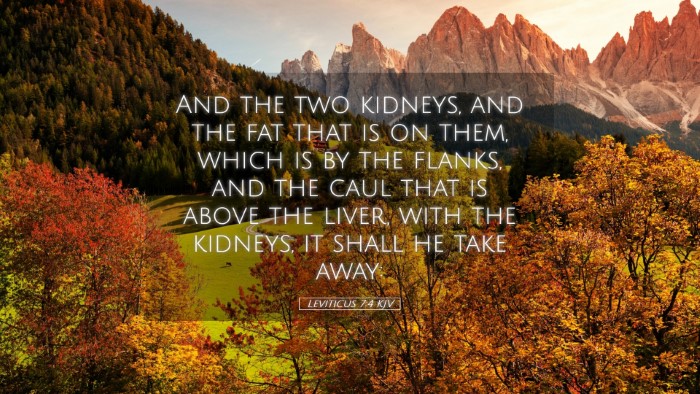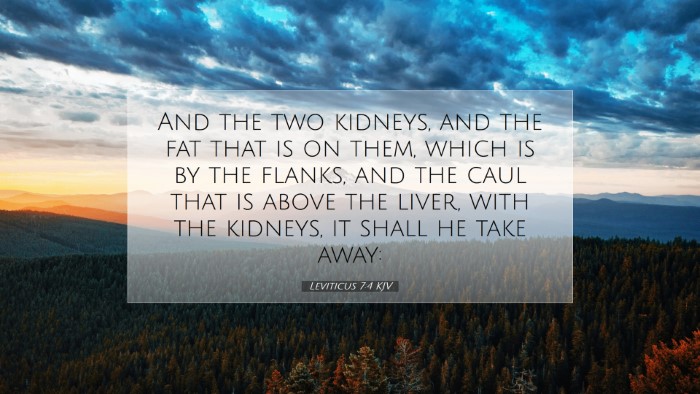Commentary on Leviticus 7:4
Verse: "And the two kidneys, and the fat that is on them, which is by the flanks, and the caul that is above the liver, with the kidneys, it shall he take away."
Introduction
Leviticus 7:4 is part of the instructions regarding the offerings made to the Lord, particularly focusing on the details of the peace offerings. In examining this verse, we bring together insights from various public domain commentaries, providing depth to our understanding of its significance both in the historical context of the Israelites and its theological implications today.
Historical Context
The Book of Leviticus serves as a manual for the priests and the people of Israel regarding worship, sacrifices, and the maintenance of holiness. In the context of Leviticus 7, the peace offering is a voluntary act that symbolizes fellowship, thanksgiving, and dedication to God. This verse specifies the parts of the animal that are to be set aside for God, underscoring the importance of holiness and purity in worship.
Insights from Commentaries
Matthew Henry's Commentary
Matthew Henry emphasizes the significance of the offerings specified in Leviticus. He notes that the kidneys represent the seat of emotions and thoughts, where the inner being is often depicted as the source of one's intentions before God. The passage suggests that when we come to God in worship, we offer not just our actions but the innermost parts of ourselves. Henry also reflects on the fat as a representation of abundance and richness, signifying that our offerings to God should come from our best resources.
Albert Barnes' Notes on the Bible
Albert Barnes provides a detailed explanation of the sacrificial system, highlighting that the kidneys and fats mentioned represent specific parts that were to be sacred to the Lord. He remarks on the symbolism of the 'fat' as it represents the best portions of the animal, a principle recurring throughout the Levitical laws. Barnes points out that God requires the choice parts of the offerings, which reflects the need for our sacrifices to be thoughtful and intentional, dedicating not only material offerings but also spiritual commitment to God.
Adam Clarke's Commentary
Adam Clarke offers insights into the ceremonial aspects of the offerings, emphasizing that these specifications may seem meticulous but enforce God’s demand for precision in worship. He posits that these guidelines served both to educate the Israelites about holiness and to foreshadow the ultimate sacrifice of Christ, who would offer His body and shed His blood as the perfect and final sacrifice. Clarke aligns this verse with New Testament teachings, illustrating continuity in God's expectations across covenants.
Theological Significance
This verse, while rooted in the ceremonial law, speaks profoundly about the nature of divine worship. The details remind us that God is sovereign and has established specific ways for His people to approach Him. The meticulousness in these instructions reflects God’s holiness; He desires sincerity and purity in our worship as seen through the specific parts of the sacrifice designated for Him.
Practical Application
For pastors and theologians, Leviticus 7:4 invites a deeper reflection on how we approach worship today. As we consider what we offer to God—our time, talents, and resources—we are challenged to evaluate whether we are bringing our best and most sincere selves before Him.
-
Worship with Intent: This verse reminds us that our worship—and offerings—should be deliberate and meaningful, not casual or haphazard.
-
Holiness in Offerings: Just as specific parts were to be set apart for God, we too should dedicate aspects of our lives that reflect His holiness.
-
Symbolism of the Sacrifice: The notion of sacrificing our 'fat' or best offerings can be paralleled in modern terms, where we consider what is truly valuable to us—will we set that aside for God?
Conclusion
Leviticus 7:4 may appear to be a simple instruction about animal parts, yet layered within are rich theological implications and a call to sacrifice from the heart. The commentaries of Matthew Henry, Albert Barnes, and Adam Clarke converge to reveal a multifaceted understanding of how God seeks our worship and the purity of our offerings. As we reflect on this passage, may we be encouraged to offer our best to God, acknowledging His sovereignty and grace in our lives.


